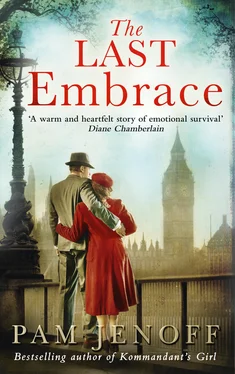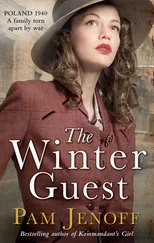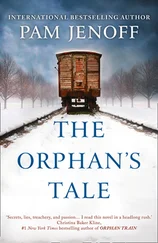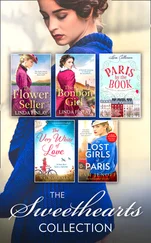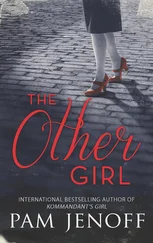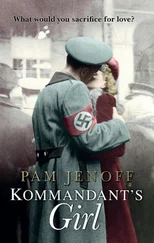The others stopped playing and gathered to peer up at me. “A girl,” the oldest brother corrected. “Don’t be shy,” he coaxed in a voice too rich and hypnotic to resist. “Come down and join us. We won’t bite.”
“We might,” the twin without the glasses taunted. I hung back. Then, curious and struck by the kindness of the oldest boy’s eyes, I opened the door and started down the steps.
“I’m Jack,” the twin with glasses said when I’d reached the bottom. He held out his hand. Closer I could see that he had a fuller face than his brother, splashed with freckles. Long lashes blinked behind the thick lenses.
I opened my mouth but no sound came out. “Adelia,” I croaked finally, wishing my accent was not so obvious.
The leaner twin cocked his head. “She must be the greenhorn from Italy that Dad mentioned.” How did they know about me? I blinked, caught off guard by the rudeness of his tone. My cheeks reddened and I started to turn. Coming downstairs had been a mistake.
“Don’t mind Liam,” said the oldest boy, his voice low and resonant. I stared up, not answering. He was even more handsome up close, with hazel eyes and a wide smile. Bright sunlight seemed to cast a halo of gold around him. “I’m Charlie.” My breath caught. I brushed my hair from my face, trying to think of something to say that would impress him, make him take notice. He cupped his hand on the head of the youngest boy standing beside him. “And this is Robbie.”
I smiled down at Robbie, who had wide, round cheeks that seemed to cushion his eyes, and front teeth still a bit too big. He stood very straight, trying to look taller in a way that I recognized from doing it myself. “Nice to meet you,” I said solemnly.
“Adelia,” Charlie said, as if trying my name on for size. Hearing him say it, my insides warmed. “That’s a mouthful. Is it okay if we call you Addie?”
I nodded, liking the short, easy sound. “ Si . I mean, yes.” I blushed. My knowledge of English was not awful. Mamma had insisted that I learn other languages since I was a child. I had read as much as I could since coming here, mostly Ladies’ Home Journal and the other women’s magazines Aunt Bess loved. And I had listened to the radio programs, too. But I had not had much opportunity to practice speaking and when I was nervous it all seemed to fade away.
“Come meet our mother.” Before I could reply, Charlie strode across the lawn, covering it in about two steps. The others followed. “Mom!” The red-haired woman emerged from the house, wiping her hands on the apron that covered her light blue shirtwaist dress. “This is Addie. She’s staying next door.”
The woman smiled with a kindness that said she had heard about me. “Hello! We’ve been summer neighbors of your aunt and uncle for years, though we usually get here a good deal earlier. I’m Doris Connally.”
“Where did you come from?” Robbie interjected.
“From Trieste, in Italy. On a boat.”
“All by yourself?” he asked. I nodded, standing straighter.
“Well, that’s something,” Mrs. Connally said, her voice full of admiration. “I normally wouldn’t even make the trip down to the shore by myself, but my husband had to work and the boys wanted to be here for the fireworks on the Fourth.”
“Who lives there with you?” Robbie resumed his interrogation, pointing up to the screened porch where I had stood minutes earlier.
“Just my aunt and my uncle.”
“No brothers or sisters? Any pets?” I shook my head twice, trying to keep up with his questions. “Boy, you’ll sure be glad to have us around!” His brothers chuckled.
Robbie turned to his mother. “Can we keep her?”
“Robbie, she isn’t a puppy. But I do hope you’ll join us often,” she added.
“Because we really need more kids,” Liam said wryly. His words stung. But he did not sound as though he was trying to be mean, just truthful.
The yellow dog I’d seen earlier bounded down the porch steps and stopped at Liam’s feet. “This is Beau,” he added, face softening.
“Jack and Liam must be about your age,” Mrs. Connally remarked.
“I’m sixteen.” I heard my accent again, the way my voice did not sound like theirs.
“I’m taller,” said Liam improbably.
“Okay,” I conceded, because it seemed to matter to him a great deal.
“Would you like to join us for lunch?” Mrs. Connally offered. “I haven’t much ’til we get to Casel’s, just sandwiches.”
I still could not get over the way Americans spoke so casually of food—something I would never again take for granted. “I wouldn’t want to impose.”
Mrs. Connally smiled. “Hardly. With these boys, I’m already cooking for an army. Come on, everyone. Let’s eat.”
Charlie lifted Robbie across his shoulders like a sack of potatoes and started for the door with the twins at his heels. Inside, the house was airy and cool. There were little touches, like the carved oak bannister and wide windows, that said the house had been built for someone to live in year-round, and not merely as a vacation home.
As we passed through the living room, I paused to admire a chess set which sat already unpacked on a low table. “It’s lovely,” I said, fingering one of the carved wooden rooks.
“Do you play?” Charlie asked with new interest.
I tried to calm the fluttering in my stomach. “I did. My father taught me.” In recent years when he had become broken and withdrawn, it was my one way to still connect to him. Papa had no one to play with him now. I imagined the chessboard sitting unused by the fireplace in our apartment in Trieste. It had been my dearest possession—the one thing I might have brought with me, had I known I was going.
I followed Charlie through the open boxes that littered the floor to the freshly scrubbed kitchen smelling of lemons. Mrs. Connally unpacked a basket of meats and cheeses and began slicing thick white bread. My stomach rumbled embarrassingly. Even after several weeks here, every meal felt as though it might be my last.
The boys whooped and hollered their way to the kitchen table, its enamel top scratched from years of use. Charlie plunked Robbie down in his chair before grabbing Liam and Jack under each arm and pretending to bang their heads together.
“Boys!” Mrs. Connally admonished, but her tone was good-natured, as if the chaos was normal. She turned to me. “Why don’t you sit here next to me where these little rascals can’t bother you.”
“Thank you.” I slid into the chair Mrs. Connally indicated, then looked hopefully at the empty seat next to mine. But Charlie dropped down between the twins on the other side of the table.
Mrs. Connally passed me a plate of sliced tomato. “We just bought these at a farmer’s stand on the way into town.” The piece I took was warm. Biting into it, I was taken back to sun-soaked holiday afternoons at the cottage outside Trieste, filling our baskets with tomatoes off the vine for Nonna to make her thick sauce.
Mrs. Connally handed around the platter of sandwiches and glasses of milk. The kitchen turned quiet as the boys attacked their lunches. Each of them ate differently. Charlie wolfed his meal down in great bites, barely pausing between mouthfuls to breathe or speak. Jack was meticulous, as if auditioning for a part. Liam sat back and nibbled disinterestedly, while Robbie played with his food just shy of irritating his mother. I ate carefully, taking care not to leave crumbs.
From where I sat at the kitchen table, I could see that the house was a bit down-at-heels, the paint peeling and woodwork worn. “It’s been in my family for generations,” Mrs. Connally said, seeming to notice. “It’s a lot to keep up, but I couldn’t bear to sell it.”
Читать дальше
